Eritrea part 3
In today's show we will read out the press release of infokolpa activists group and our comrade khalid from Eritrea will talk about the latest events conservation Eritrean asylum seekers in Slovenia,
Since the end of 2019, the Ministry of the Interior (MNZ) has been rejecting applications for international protection of Eritreans in large numbers. The practice surprises and deviates from the previous procedure of the Ministry of the Interior, when it issued a positive decision to many Eritrean applicants who arrived in Slovenia under the relocation program. The majority of Eritreans, who recently came to Slovenia via the Balkan route and submitted an application, received a negative decision. Of the approximately 15 Eritrean applicants, the Ministry of the Interior issued a positive decision to only three and rejected the applications.
Following the appeals of rejected applicants, the negative decisions of the Ministry of the Interior have so far been confirmed by the administrative court in four cases, despite the obvious life-threatening situation of the applicants upon their return to their country of origin. “I saw people screaming and beating me who was very tired. The same time as the food came the doctor. If you went to the doctor, you missed the food. It was better to take food. The doctor couldn't help you, he could only give you a pill or two. If you couldn’t walk and work, if you were crippled, they took you by car, unknown where. I didn't see anyone come back. Maybe they survived, maybe they died, ”he recalls the actions of the guards and the situation in the Eritrean labor camp from which he escaped, an Eritrean who was denied an application by the Ministry of the Interior in the winter of 2020.
The negative decisions of the Ministry of the Interior on Eritrean applications deviate significantly from the average in other EU countries, which are clearly better aware of the political situation in Eritrea. Eritrea is ruled by a military dictatorship that does not respect human and labor rights, which makes Eritrea one of the highest countries in the indexes of forced labor compiled by international organizations (International Labor Organization, International Organization for Migration, Walk Free Foundation). level of forced labor. Eritrean citizens are also often forced into decades of military service, which also means deployment to perform the heaviest physical work on construction sites, fields and mines. Whoever escapes from a military conscription or from labor camps and is then captured faces imprisonment as well as death.
Večji delež pozitivnih odločitev se odobri samo prosilcem iz Sirije in Jemna, državi, ki sta obe žarišči uničujočih vojn. Argumentacija v posamičnih negativnih odločbah je tudi kratkomalo bizarna in zavajajoča. MNZ se v odločbah sklicuje na domnevno izboljšano stanje v Eritreji, kar je v nasprotju z aktualnimi poročili mednarodnih organizacij in evropskih institucij. V odločbah navaja le nekaj virov, ostala poročila mednarodnih organizacij (Združeni narodi, Amnesty International, Human Rights Watch, CIA) in medijev (The Guardian, The Irish Times) o situaciji v Eritreji pa neutemeljeno zavrača zgolj na podlagi pavšalne ocene, da vsebujejo pričevanja eritrejskih beguncev, ki jih ocenjuje kot subjektivna in zato pristranska.
Odločbe so napisane generično in nestrokovno: uporaba virov o situaciji v Eritreji je selektivna, obravnavanje posameznih primerov je nefaktično in vsebuje napačne geografske podatke in informacije o prosilčevi religiji, jeziku in zakonskemu stanu. Napačne informacije ne presenečajo, ker na uradnem seznamu sodnih tolmačev ministrstvan ni tolmačev za jezike, ki jih govorijo v Eritreji. Izsiljena izbira prevajalcev v postopkih, ki ne govorijo materinščine prosilca, je tako nujno nestrokovna in neprimerna ter vodi v neveljavnost uradnega postopka. Prav tako pa lahko vodi v neskladja in napačnost zapisa in interpretacije prosilčevih izjav. Spomnimo, da prakse koordiniranega zavračanja prosilcev za mednarodno zaščito določenega državljanstva niso nove.
Leta 2016 je MNZ na takšen način zavrnilo afganistanske prosilce, ko pozitivne odločitve ni dobil noben polnoleten posameznik ali družina, navkljub jasnemu poslabšanju razmer v izvorni državi. Tovrstno birokratsko nasilje in postavljanje papirnatih zidov je namenjeno neformalnemu izgonu prosilcev. Eritrejski prosilci so v postopku tudi do 19 mesecev, kar presega 15 mesečni rok, ki ga zahteva Direktiva 2013/32/EU Evropskega parlamenta. Ker je Eritreja vojaška diktatura, deportacije tja niso mogoče, zavrnjenim prosilcem zato preostane le, da zbežijo iz Slovenije v upanju na možnost zaščite drugod ali da ostanejo v Sloveniji in so kot ilegalne osebe izgnani na Hrvaško in nato prek zelene meje v Bosno in Hercegovino.
Že tako nepredvidljiv položaj prosilca zaradi dolgotrajnosti sodnih postopkov pritožb in črnoglede prihodnosti sili prosilce k temu, da zapustijo Slovenijo, kar je pravzaprav nadejana želja MNZ, ki se je tudi v primeru eritrejskih prosilcev deloma uresničila. Nestrokovno in brezbrižno obravnavanje prošenj za mednarodno zaščito služi krepitvi represivne migracijske politike Slovenije in EU, zato od MNZ zahtevamo odgovore na sledeča vprašanja:
-
Kako MNZ razlaga spremembo v letu 2020 pri odločanju o prošnjah za mednarodno zaščito Eritrejcev?
-
Katere spremembe v Eritreji opravičujejo tovrstno spremembo v rezultatu novih prošenj za mednarodno zaščito?
-
Kako MNZ komentira relevantnost odločbe, če se ta ne opira na aktualna poročila?
-
Kaj MNZ sprejema kot objektiven in nepristranski vir o stanju v Eritreji, če tega ne priznava poročilom mednarodnih organizacij, ki temeljijo na številčnih in konsistentnih pričevanjih Eritrejcev?
Od Republike Slovenije zahtevamo pravično in vključujočo azilno politiko, da spoštuje pravico do mednarodne zaščite, sprejme več beguncev in poveča kapaciteto integracijskih zmožnosti!
Izjavo je pripravila civilna iniciativa InfoKolpa.
Pozivu se pridružujejo:
Inštitut za afriške študije
Amensty International Slovenija
Mirovni Inštitut
Društvo Odnos
Društvo Raznolikost
Zavod Voluntariat – SCI Slovenija
Zavod Tri
Zavod Proja
/////////////////////////// ENG //////////////////////////////////////
A response to the increase in negative decisions of applications for international protection of Eritreans in Slovenia
Since the end of 2019, the Ministry of the Interior has been systematically rejecting applications for international protection of Eritreans. This practice is surprising as it deviates from previous years when the ministry issued positive decisions to many Eritreans who arrived in Slovenia under the relocation program. However, the majority of Eritreans asylum seekers, who recently came to Slovenia via the Balkan route, received a negative decision. Of the approximately 15 Eritrean applicants, a positive decision was issued in 3 cases, all other applicants were rejected. Following the appeals of rejected applicants, the negative decisions of the ministry have so far been upheld by the administrative court in 4 cases, despite the obvious life-threatening situation the applicants face upon their return to their country of origin.
“I saw guards beating and screaming at very tired people. The doctor came at the same time the food was being distributed. If you went to see the doctor, you missed the food. It was better to take the food. The doctor couldn't help you. He could only give you a pill or two. If you couldn’t walk and work, if you were too exhausted, they took you by car to an unknown location. I didn't see anyone come back. Maybe they survived, maybe they died,” recalls an Eritrean asylum seeker in Slovenia when he describes the behaviour of guards and conditions in an Eritrean labour camp from which he escaped. His application for international protection was denied by the ministry in the winter of 2020.
The recent negative decisions of the ministry on Eritrean applications deviate significantly from the average in other EU countries that are better aware of the political situation in Eritrea. Eritrea is ruled by a military dictatorship that does not respect human and labour rights. Eritrea is found at the top of indexes compiled by international organizations (International Labour Organization, International Organization for Migration, Walk Free Foundation) of countries where forced labour is present. Eritrean citizens are often forced into decades of military service. They are deployed to perform hard physical labour on construction sites, fields and in mines. Whoever escapes from military conscription or labour camps and is then captured by security forces faces imprisonment as well as a possible death sentence outside of a court ruling. Therefore, according to the European Asylum Support Office (EASO), European countries grant international protection at the first instance to more than 80% of Eritrean applicants. A greater proportion of positive decisions are granted only to applicants from Syria and Yemen, countries that are both ravaged by devastating wars.
The ministry’s arguments in individual negative decisions are misleading and outright bizarre. The ministry refers to an allegedly improved situation in Eritrea. This is contradicted by current reports by international organizations and European institutions. The ministry cites only a few sources in its decisions and rejects reports from other international organizations (United Nations, Amnesty International, Human Rights Watch, CIA) and the media (The Guardian, The Irish Times) based on a flat assessment that they contain mostly testimonies of Eritrean refugees, which it considers being subjective and therefore biased.
Decisions are written generically and unprofessionally. The use of sources on the situation in Eritrea is selective. The handling of individual cases is non-factual and contains incorrect geographical data and information on the applicant's religion, language and marital status. Such misinformation is not surprising, as there are no interpreters for the languages spoken in Eritrea on the ministry’s official list of court interpreters. The forced selection of translators that do not speak the applicant's mother tongue is thus necessarily unprofessional, inappropriate and leads to invalid formal procedures. It can also lead to inconsistencies and inaccuracies in the written record and false interpretation of the applicant's statements.
It is necessary to remember that in Slovenia the practice of coordinated rejection of applicants for international protection of citizens of a particular country is not new. In 2016, the Ministry of the Interior rejected Afghan applicants in this way. No Afghan adult individuals or families received a positive decision at that time, despite a clear deterioration of the situation in their country of origin. This type of bureaucratic violence and erection of paper walls intends to informally expulse applicants. Eritrean applicants can wait for their decisions up to 19 months, which exceeds the 15-month deadline required by Directive 2013/32/EU of the European Parliament. As Eritrea is a military dictatorship, deportations to it are not possible. All that is left to the rejected applicants is to flee Slovenia in hope of getting protection elsewhere or to stay in Slovenia and be deported to Croatia and then to BiH as illegal persons. Due to lengthy court appeals and pessimism about the future, the applicant's already unpredictable position gets worse and forces refugees to leave Slovenia – a decision that suits the ministry.
Unprofessional and careless handling of applications for international protection serves to strengthen the repressive migration policy of Slovenia and the EU. We demand answers to the following questions from the Ministry of the Interior:
- How does the ministry explain the recent change in decisions regarding applications for international protection of Eritreans?
- What political changes in Eritrea justify recent negative decisions?
- How does the ministry comment on the relevance of a decision if it does not rely on current reports?
- What does the ministry accept as an objective and impartial source on the situation in Eritrea if it does not accept the reports of international
organizations that are based on numerous and consistent testimonies of Eritreans?
We demand that the Republic of Slovenia has a fair and inclusive asylum policy, that it respects the right to international protection, accepts more refugees and increases its integration capacities!
The statment was prepared by Infokolpa with cosignatories:
Voluntariat Institute - SCI Slovenia
Institute for African Studies
Amnesty International Slovenia
Peace Institute
Humanitas Society
Society Relationship
Society Diversity
Plant Three
Zavod Proja

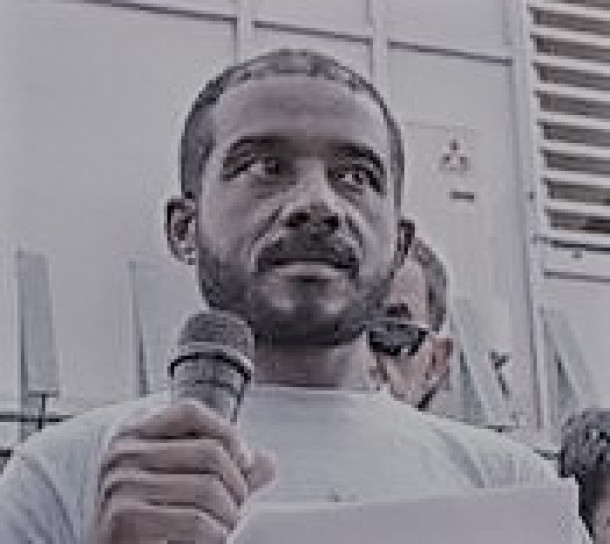



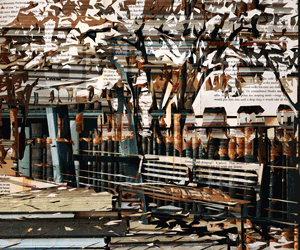
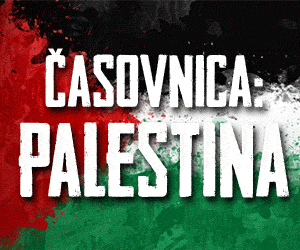
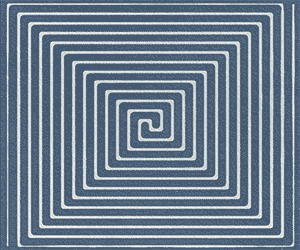






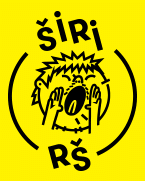
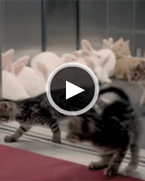







Prikaži Komentarje
Komentiraj